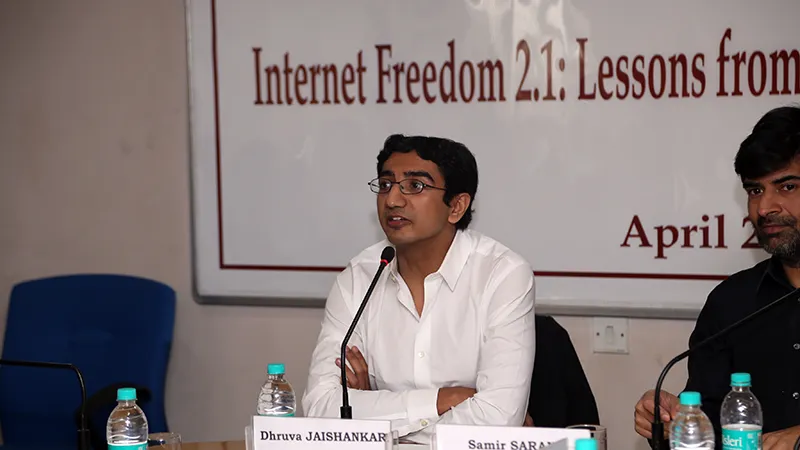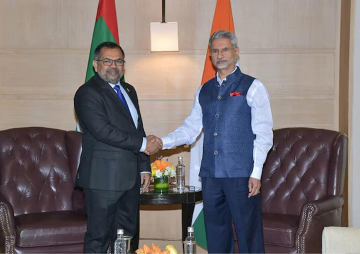There is an urgent need to focus on key legislations in the real world; expanding internet access in India by ensuring social and technological growth go hand-in-hand; and the complexity of bridging divides between various factions on the issue.

There is an urgent need to focus on key legislations in the real world; expanding internet access in India by ensuring social and technological growth go hand-in-hand; and the complexity of bridging divides between various factions on the issue.
These thoughts were raised by Samir Saran, Vice President, ORF, while chairing a discussion on April 22 after Dhruva Jaishankar from The German Marshall Fund presented a report "Internet Freedom 2.1: Lessons from Asia’s Emerging Democracies" at Observer Research Foundation.
Introducing the report, Samir Saran said it focused on South and South East Asia.
Jaishankar began by saying this was not a study of internet governance, or militarization of internet governance, or cyber security. It was about the individual’s ability to access the internet freely, as well as about surveillance, filtering, censorship, anonymity and day to day existence. He added that security, economic development and democratic governance were the 3 central aspects to Indian policy. He explained that global GDP, the number of internet users and the number of users in open societies had seen upward trajectories and added that the data did not capture the depth of the quality of information, as one did not know the exact relationship between the three.
He elaborated that the growth was dominated by developing countries such as India, Indonesia, Bangladesh, Philippines and Thailand. These were the countries that had been focused on for the case study, though countries such as Brazil or Turkey could also have been included. Internet as a platform for organized political activism was a factor to be kept in mind with regard to developing countries, as were political rights and civil liberties.
The lessons based on discussions in the region pointed towards the need to start thinking of the online world as an extension of the offline world. According to the speaker, Phillipines and Indonesia had harsher punishments of crimes under the ICT tools. He added that the argument of Bad Government vs. Good Corporation needed to be considered. Curbs on internet freedom were a complex issue as the current legislation was vague across the world leading to arbitrary implementation.
Mahima Kaul, Fellow, ORF, explained that internet freedom arguments that have their root in economic freedom can be troublesome as they can be perceived to be made simply to expand the economy of one country. Therefore, the internet freedom discourse should remain free of economic motivations. In terms of India’s surveillance regime, she elaborated that India’s surveillance system NETRA could be more invasive than offline surveillance, due to the paucity of information on the data trail, making it hard for a falsely convicted person to prove him/herself innocent.
Discussions at the end of the session included observations on the legal framework of the Constitution regarding the limits of freedom; the need to foster robust public debate to reign in powers of the government; a possible conflict between policy makers and users regarding internet freedom. Further observations related to removal of differences in a sovereign and territorial world, need for a new global norm, and working within the existing framework. Comments were added on access to internet; geopolitics of internet freedom and on future trends and encryption policy.
Internet etiquette and cyber bullying were also raised as points of concern. Final comments raised by the participants of the seminar related to a police online state vs complete anarchy; as well as the political classes emerging out of digital media. In India, digital media seemed to be reinforcing some identities.
The views expressed above belong to the author(s). ORF research and analyses now available on Telegram! Click here to access our curated content — blogs, longforms and interviews.




 PREV
PREV

